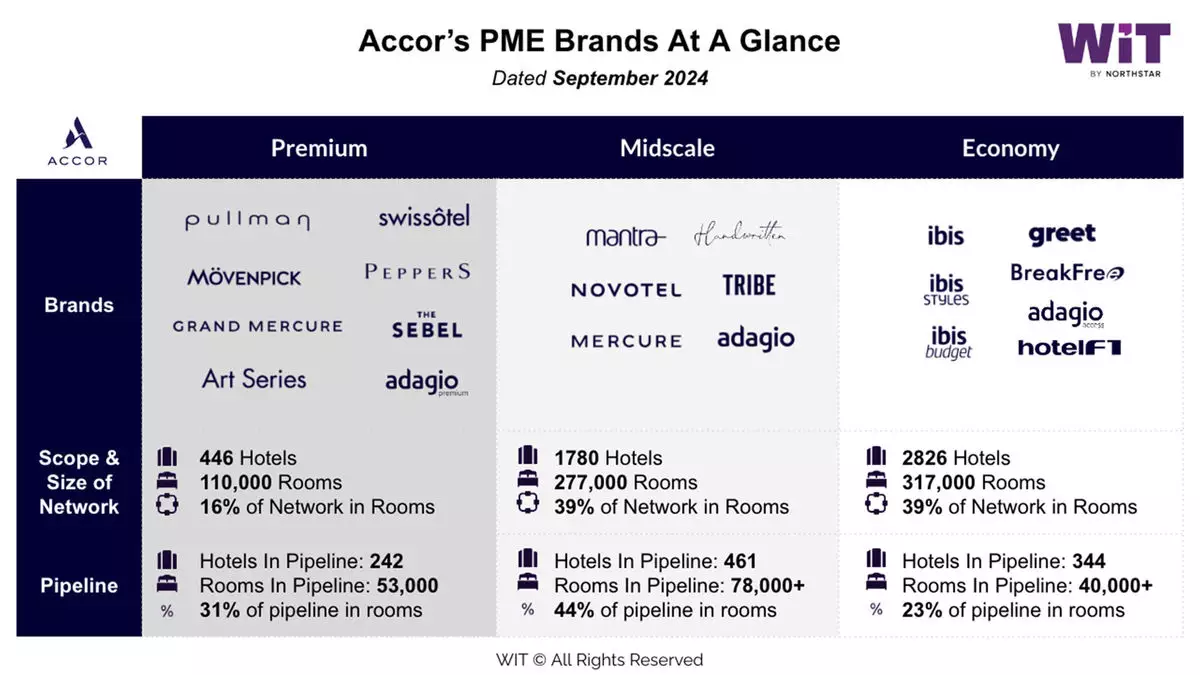The hospitality industry is undergoing a profound transformation, largely driven by changing consumer preferences and societal trends. In a recent encounter with Benoit Racle and Jean-Yves Minet, who helm the global brand strategy at Accor, insight emerged on how wellness and sustainability have intertwined with the art of hospitality. Meeting at the serene Movenpick BDMS Wellness Resort in Bangkok, their energy was palpable, reflecting not only their personal commitment to health but also their vision for the industry. While coffee and alcohol might be staples for many, Racle’s and Minet’s choices—decaf coffee and sparkling water—signaled a shift toward healthier lifestyles that resonate deeply with modern travelers.
Both industry leaders emphasized that well-being is not merely an abstract concept; it’s increasingly woven into the fabric of travel. Racle, who bears the weight of considerable experience in the hospitality realm, pointed out that the concept of wellness should not compromise the joy of traveling. This perspective aligns with a larger trend where travelers prioritize health and wellness almost as much as they prioritize leisure. The modern traveler is informed, conscious of lifestyle choices, and often expects their accommodations to reflect these values. Racle’s anecdote about the declining youth smoking rates and the rise of alcohol-free spaces in urban centers like New York serves as a foundational example of how younger generations are reshaping consumption patterns, both in their lives and as guests.
Recent data from McKinsey & Co. reveals compelling insights into the consumer wellness market, estimated at an impressive $1.8 trillion globally. Particularly eye-opening is the reported growth of the wellness market in the United States, which has reached a staggering $480 billion, expanding at a rate of 5% to 10% annually. With figures indicating that up to 82% of U.S. consumers view wellness as critical to their livelihood, it is clear that this trend is not just a fleeting fad but a fundamental cultural shift. It is noteworthy, too, how similar sentiments echo across the globe, with high wellness priority registration in countries like the United Kingdom and China.
While the focus on wellness is essential, both Racle and Minet also recognized another megatrend: environmental consciousness. This reflects a global awareness of sustainability that transcends geographical divides. Minet’s insights from his experiences in emerging markets highlighted a surprising yet promising evolution within the emerging middle class, who are increasingly educated and environmentally aware. This observation calls attention to the fact that sustainability is not solely a Western concern but a burgeoning priority across diverse cultures. Racle’s comment about consumers using their spending power to support brands that align with their sustainability values underscores the critical shift in brand-consumer relationships.
As the hospitality sector continues to adapt, the need for an authentic rebranding of atmosphere and experience becomes paramount. Both executives articulated the necessity of catering to guests seeking enjoyable social experiences that do not revolve around traditional alcohol-centric environments. This presents a unique challenge and an opportunity for hotels to cultivate new experiences that symbolize inclusiveness and healthfulness. Creating inviting spaces that resonate with wellness seekers requires a strategic overhaul in design, menu offerings, and overall guest engagement to remain pertinent in an evolving market.
Racle and Minet’s insights suggest that the convergence of wellness and sustainability will play a critical role in shaping the future of hospitality. As consumers grow more discerning and prioritize their well-being and environmental impact, hospitality businesses must evolve or risk becoming obsolete. It is a pivotal moment for the industry, one that promises to redefine how we think about travel, experience, and the simple act of hospitality itself. The combination of health, sustainability, and thoughtful consumer engagement appears not only as a trend but a necessity in creating lasting connections with travelers around the world.


Leave a Reply